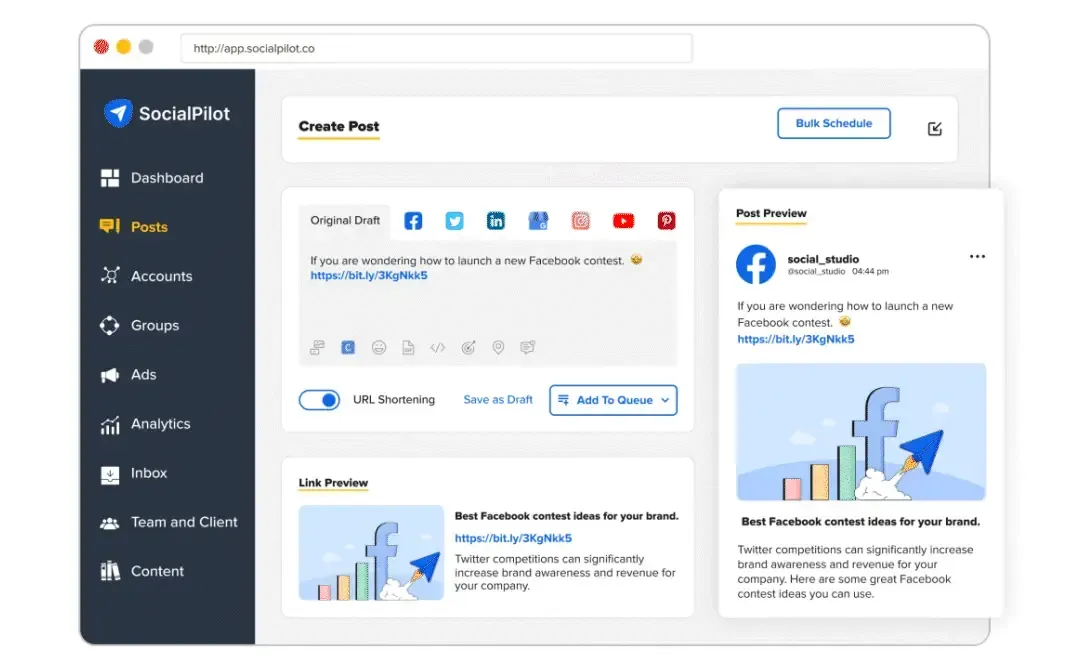Cost management is crucial for the growth and sustainability of any business, including digital agencies. Managing costs effectively can make the difference between success and failure in an industry that is constantly evolving and facing increasing competition.
Effective cost management allows digital agencies to improve profitability, streamline operations, and reinvest in growth initiatives. It involves monitoring and controlling expenses, optimizing resources, and identifying areas where costs can be reduced without compromising quality or performance.
In addition, the Global Digital Marketing Spending Market is also forecast to grow by $323.29 billion from 2022-2027. This indicates a significant opportunity for digital agencies to increase their market share and revenue, but this growth can only be sustained if costs are managed effectively. In this context, this article will delve into the importance of cost management for digital agency growth and provide practical tips for achieving it.
Understanding the Importance of Project Cost Management
Project cost management is the process of planning, estimating, budgeting, funding, and controlling costs to complete a project within its allocated budget and efficiently use resources.
This is an essential process for digital agencies, providing numerous benefits to help them achieve their goals. Effective project cost management enables digital agencies to estimate and track project costs, optimize resource utilization, deliver projects on time and within budget, and improve their overall project management processes.
One example of a digital agency that has benefited from project cost management is SmartBug Media. This full-service digital marketing firm specializes in inbound marketing, website design, and other digital services.

The agency has implemented project cost management processes, enabling it to estimate and track project costs, optimize resource utilization, and deliver projects on time and within budget.
By implementing project cost management, SmartBug Media has achieved the following benefits:
- Improved profitability: They maximized their profits by accurately estimating project costs and reducing costs where possible and enabling them to increase their revenue and financial performance.
- Enhanced client relationships: They have built and maintained strong client relationships by delivering projects on time and within budget. This has helped the agency to retain existing clients and win new business.
- Increased competitiveness: By delivering high-quality projects on time and within budget, they have been able to differentiate itself from its competitors, improving its market position and increasing its market share.
- Process optimization: The agency has enhanced its processes by pinpointing areas for improvement, optimizing resource allocation, and minimizing costs. As a result, operations’ efficiency and deliverables’ quality have improved.
One key aspect of project cost management is accurate budgeting.
According to the Project Management Institute (PMI), poor cost management is one of the leading causes of project failure. To achieve their goals, agencies must prioritize projects aligning with their strategic objectives while remaining within their budgetary constraints.
Project cost management provides a framework for monitoring and controlling project costs, enabling agencies to identify potential cost overruns early on and take corrective action before they become a problem.
Impact of Poor Project Cost Management
Poor project cost management practices can severely affect digital agencies, including financial losses, missed deadlines, and damaged client relationships.
Inaccurate cost estimation can result in unexpected expenses, reducing profitability. Without strict budget control measures, costs can spiral out of control quickly, leading to missed deadlines and damage to the agency’s reputation.
Furthermore, poor resource management may result in a lack of skilled personnel or inadequate tools, leading to missed deadlines, increased costs, and reduced quality of work. Failing to track project costs can make understanding where money is being spent challenging, resulting in cost overruns and reduced profitability.
Digital agencies must have contingency plans for unexpected expenses or project changes to prevent going over budget and damaging their reputation.
Let’s further delve into this by looking at the consequences of poor project cost management.
Consequences of Poor Project Cost Management
1. Budget Overruns
Budget overruns are among the most significant consequences of poor project cost management. When projects are not effectively managed, costs can spiral out of control, resulting in budget overruns that can be difficult to recover from. This can lead to the project’s cancellation or a reduction in the quality of deliverables.
For example, in 2002, the UK government launched a project to modernize the IT systems used by the National Health Service (NHS). The project, intended to cost £6.2 billion, ended up costing more than £10 billion due to poor project cost management. As a result, the project was widely criticized and ultimately deemed a failure.
2. Missed Deadlines
When projects go over budget, it can become difficult to complete them on time, leading to delays in delivering the project’s objectives. This can result in lost opportunities, lost revenue, and damage to a company’s reputation.

For example, Boeing experienced multiple delays in the delivery of its 787 Dreamliner aircraft. Originally launched in the early 2000s, the program faced several postponements due to supply chain challenges, quality control issues, technical complexities, and poor project cost management. These complications led to delivery delays that affected airline customers and increased costs for Boeing. The delays were further exacerbated by regulatory scrutiny and production quality concerns, particularly from 2019 onward, causing significant disruptions in deliveries until resolutions were reached in 2022.
3. Reduced Quality of Deliverables
Underfunded projects make delivering high-quality products or services difficult, leading to customer dissatisfaction and a loss of business.
The 2013 rollout of the ACA (Affordable Care Act) website in the US was marred by significant technical issues due to poor project cost management, leading to negative media coverage and frustrated users.

Inadequate testing and launching an unfinished website were the root causes of the problems, leading to reduced quality of deliverables and a negative impact on government agencies responsible for the site’s development.
How Poor Cost Management Hinders Digital Agency Growth
Poor cost management can significantly hinder the growth potential of a digital agency. In the highly competitive digital industry, agencies that cannot manage costs effectively risk losing clients, damaging their reputation, and limiting their ability to invest in future growth.
Poor cost management can lead to a decline in profitability, making it more difficult for the agency to reinvest in its operations and pursue growth opportunities. Delays in project delivery can harm client relationships, eroding client trust and confidence, leading to lost business, and damaging the agency’s reputation.
Additionally, cost overruns and delays can consume resources that would otherwise be used to invest in new technology, extend service offerings, and pursue new markets. This can result in missed opportunities for growth and limit the agency’s long-term potential.
Strategies for Effective Project Cost Management
Pre-Project Planning
By identifying potential risks, opportunities, and cost-saving strategies early in the project lifecycle, project teams can develop effective cost-management strategies and contingency plans, stay focused on project objectives, and minimize the potential for cost overruns and delays.
1. Creating a Detailed Project Scope
The scope defines the project’s boundaries and outlines the deliverables, tasks, and requirements to achieve objectives.
Developing a detailed project scope involves a collaborative process between project managers, stakeholders, and subject matter experts. This process typically includes several steps, such as defining the project objectives, identifying deliverables, and outlining project requirements.
2. Creating a Budget and Allocating Resources
Effective budget creation involves several crucial steps, starting with identifying all the resources a project requires. Teams then estimate the costs of each resource and use this information to develop a comprehensive budget.
This process ensures that all costs associated with completing the project are accounted for, minimizing the risk of cost overruns.
Additionally, a well-planned budget enables teams to allocate resources effectively and establish clear financial goals and objectives for the project.
Effective resource allocation involves several steps, including identifying the project’s critical path, determining the availability of resources, and assigning resources based on their skill set and availability. Effectively allocating resources helps teams stay on track and measure progress toward their goals, ensuring the project is completed successfully and within budget.
Tracking Project Costs
Project cost tracking involves monitoring and controlling the costs associated with a project throughout its lifecycle, from planning to delivery.
Establishing a baseline budget, tracking actual costs, and analyzing cost variances are crucial steps in project cost management. These steps allow project managers to control project expenses, identify potential risks, improve decision-making, and optimize resource utilization through implementing corrective actions.
1. Using Project Management Software
Project management software is equipped with various features that allow project teams to track costs, monitor progress and identify risks.
With real-time data and analytics, project management software enables informed decision-making regarding resource allocation and project management, optimizing resource utilization and improving project outcomes. Moreover, it offers a centralized platform for communication and collaboration, enhancing team productivity and reducing the likelihood of miscommunications and errors.
2. Time Tracking
Time tracking involves monitoring the time team members spend on project tasks and activities and using this data to calculate the cost of labor associated with the project. There are tools like Unrubble, Time Doctor, and more for this purpose.
One of the primary benefits of time tracking is that it allows project teams to accurately calculate the cost of labor associated with a project.
By tracking the time team members spend on project tasks, project managers can calculate the work cost related to each lesson and activity. This can help project managers to identify areas where labor costs are higher than expected and take action to mitigate these risks.
3. Regular Reporting
Regular reporting involves providing regular updates to project stakeholders on project costs, progress, and potential risks.
It can also help project teams improve communication and collaboration among team members and stakeholders. By providing regular updates on project costs and progress, project teams can facilitate open communication and cooperation among team members and stakeholders.
Post-Project Analysis
Post-project analysis evaluates actual project costs against budgeted expenses, identifying reasons for variances. It provides insights into project cost management effectiveness by comparing actual costs to budgeted expenses. Teams identify higher-than-expected costs and refine cost management strategies for future projects to improve performance.
1. Analyzing Project Success
Project teams evaluate project success against goals and budgetary objectives using metrics like ROI and earned value analysis. These metrics can help evaluate the project’s financial performance and determine whether it met its budgetary goals.
They also consider non-financial metrics such as customer satisfaction, stakeholder engagement, and employee satisfaction. This analysis identifies areas of improvement and promotes a culture of continuous improvement. It also leads to lessons learned and best practices that enhance project cost management strategies in future projects.
2. Evaluating Profitability
To determine the project’s financial success, project teams can use measures like return on investment (ROI), net present value (NPV), and internal rate of return (IRR). By assessing the project’s profitability, project teams can identify areas where costs exceeded expectations and optimize costs for future projects.
Teams can also assess the impact of cost management strategies on profitability by comparing actual project costs to budgeted expenses. This analysis can help identify opportunities for improvement and increase profitability in future projects.
Evaluating profitability can also help teams identify areas where costs can be reduced in individual project components or phases, further increasing overall profitability.
3. Identifying Areas for Improvement
This involves analyzing a project’s performance to identify areas where costs could have been reduced or better managed.
One effective approach is to thoroughly review the project’s budget and actual expenses to identify areas where costs exceeded expectations and determine the underlying causes of cost overruns. This can help project teams take steps to mitigate similar risks in future projects.
Additionally, gathering stakeholder feedback and conducting internal reviews can provide valuable insights into potential improvement areas. By identifying such areas, project teams can optimize project costs, improve future projects’ financial performance, and promote a culture of continuous improvement within the organization.
Common Cost Management Challenges and Solutions for Digital Agencies
Challenge #1
Unforeseen expenses: When unanticipated costs arise during the project.
Solution
Unanticipated costs can significantly impact the project’s budget and timeline, a critical cost management difficulty for digital firms. A comprehensive budget must be developed to solve this issue, including all potential expenses and a contingency plan for unforeseen costs.
One solution is to conduct a thorough risk analysis before the project begins. This can help identify potential risks and anticipate associated costs. By factoring these risks into the budget, agencies can create a contingency plan that allows for unexpected expenses without exceeding the project’s budget.
In summary, digital agencies need a comprehensive budget with a contingency plan, regular monitoring and risk analysis, and stakeholder communication to manage unforeseen expenses and ensure project success.
Challenge #2
Poor communication: When team members aren’t communicating effectively about project costs.
Solution
Effective communication is essential for successful project cost management. Team members must communicate more effectively about project costs to avoid overruns and delays. To overcome this, digital agencies should establish a system for communication.
You can create a project communication plan outlining how and when team members will communicate about project costs. This plan should include regular meetings to review the project’s budget, timeline, and progress. The team should also clearly understand the roles and responsibilities related to project cost management.
By establishing a communication system and using project management software, digital agencies can ensure that team members communicate effectively about project costs and that potential cost overruns or delays are promptly identified and addressed.
Challenge #3
Resource allocation: When resources aren’t allocated properly, leading to cost overruns or delays.
Solution
To avoid cost overruns, delays, and other inefficiencies caused by poor resource allocation, digital agencies must regularly review and assess resource availability, capacity, and utilization.
By adjusting resource allocation based on changing project requirements, agencies can optimize project outcomes and minimize costs. This can be achieved through effective resource management tools, such as resource allocation software, that provide real-time data and analytics to inform resource allocation decisions.
By implementing an effective resource allocation strategy, digital agencies can improve project performance and profitability.

SocialPilot can be an effective tool for project cost management, as it offers a range of features to help reduce costs and improve efficiency.
Why?
- Social Media Scheduling: SocialPilot enables efficient scheduling of posts across multiple social media platforms, reducing resource requirements and saving time. By planning content, you can optimize your social media strategy and ensure maximum effectiveness.
- Analytics and Reporting: SocialPilot delivers comprehensive analytics and reporting on social media performance, providing insights into engagement, reach, and click-through rates. These metrics help identify underperforming or overspending areas, allowing for better-informed decision-making and optimized social media strategies.
- Collaboration: SocialPilot’s team collaboration tools streamline workflows and reduce the likelihood of miscommunication or misunderstandings. Centralized social media management ensures everyone is working towards the same goals, optimizing team efficiency and reducing the risk of cost overruns.
- Cost Tracking: SocialPilot tracks real-time social media advertising spending, enabling better budget monitoring and avoiding overspending. By closely monitoring costs, you can adjust your strategy for better investment returns, improving overall cost management.
- Customizable Dashboards: SocialPilot’s customizable dashboards allow for the tracking of business-specific metrics, ensuring a focus on key performance indicators that support efficient goal achievement. You can optimize performance tracking and cost management strategies by tailoring the dashboard to your needs.
Conclusion
In conclusion, effective project cost management is critical for the growth and success of digital agencies. By implementing pre-project planning, tracking project costs, and post-project analysis strategies, digital agencies can reduce expenses, improve profitability, and identify areas for improvement.
Utilizing tools like SocialPilot can also help streamline project cost management processes and improve efficiency.
Effective cost management can also lead to better client relationships, as agencies can deliver projects on time and within budget.
Failure to project cost management can result in cost overruns, delays, and potential damage to the agency’s reputation. In today’s competitive digital landscape, digital agencies must prioritize effective project cost management to achieve sustainable growth and success.
Get Control of Your Costs!
SocialPilot helps you manage all your campaigns and client accounts from one dashboard, ensuring every project stays on budget and on track. Start your free trial today and discover how to streamline your workflow and boost your bottom line.



